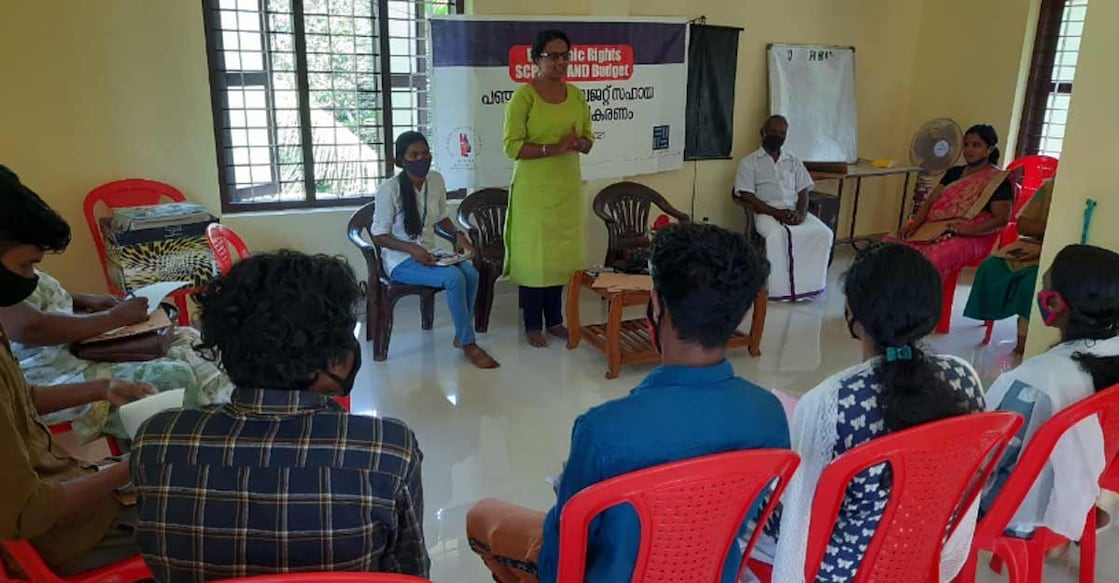No clue on how to use SC/ST development funds? Come to Kerala's first idea bank

Mail This Article
The prejudices of caste seem to run deep in literate Kerala, at least when it comes to allot development funds to Dalits under self-employment schemes.
Otherwise, no deal of imagination can explain the logic behind the proposal to give several cremation furnaces to scheduled caste women under a self-employment scheme. In 2020, the Alappuzha district panchayat raised many an eyebrow as it envisaged this project. Each furnace would cost Rs 28.23 lakh and was intended to be given to 15 women self-help groups. This move by the local body had drawn lot of flak on social media also.
The self-help groups (SHGs) and social activists said this incident was testimony to the fact that underlying prejudices influenced the decisions of the local body. They said it also showed the callous manner in which the Scheduled Caste Sub Plan (SCSP) and Tribal Sub Plan (TSP) funds were handled.
Social activists and Dalit organisations said people in the SC/ST community had progresses and their aspirations went beyond poultry farming and goat rearing. Concerned over this attitude, RIGHTS, a non-governmental organization (NGO) that works for the welfare of Dalits and Adivasis, has prepared Kerala's first idea bank to suggest schemes that truly reflect the aspirations of the people.
The document, prepared after extensive consultations with the target groups, is being circulated to initiate discussions at the gram sabha level. The idea bank includes projects ranging from ornamental fish farming to setting up of petrol pumps.
Ajay Kumar, executive director of RIGHTS, said the development fund for Dalits and tribals would end up being used for poultry or goat farming or to set up cremation furnaces. “Both RIGHTS and the National Campaign on Dalit Human Rights have been monitoring the use of funds at the grassroots level for a long time. Nearly 50 per cent of SCP and TSP funds are utilized through local bodies. We have conducted a consultative exercise among beneficiaries in around 15 panchayats ahead of preparing the idea bank,” he said.

Ajay Kumar said the idea bank was not an ‘end document'. “This is basically a statement of our desire. It has to be fine-tuned further so that it will be widely discussed among, not just beneficiaries, but also policy-makers, bureaucrats and political parties,” he said.
Ajay Kumar said there was no dearth of funds for Dalit-Adivasi welfare. “However, local bodies suggest schemes that do not often have takers,” he said.
Development exclusion
Economist M Kunhaman said the skewed implementation of TSPs and SCPs had only led to the exclusion of SC-STs. “Separate funds were introduced as part of the ‘target-group’ approach. The TSPs and SCPs were introduced in the fifth and seventh Five-Year Plans respectively. The TSP was focused on ‘area development.’ Often, tribal communities are a minority in the area dominated by settlers. As the area got developed under TSPs, the land value improved and tribal communities were driven away from such new growth centres. Instead of progress, exclusion through ‘development’ happened. As per my studies, only one-fifth of TSP funds reached the tribal communities. Settlers were the major beneficiaries,” Dr Kunhaman said.

Non-lapsable funds
Requisite changes should be brought about to make the schemes useful for the target groups, he said. “First, funds allotted under the scheme should be non-lapsable. The focus should be on individuals and households and not on area. These funds should be used for the beneficiaries to gain ownership of property, for entrepreneurship or to attain ‘scholarship.’ Only then can the communities’ dependence on the state would end, Dr Kunhaman said.
Recollecting the recent suicides of students over lack of gadgets for online education, Dr Kunhaman said the digital divide might seem new. “These children might already be facing inadequacies like unavailability of textbooks, instrument boxes, and other items needed for their education. No citizens should be deprived of any such facilities,” he said.
Fund allocation
According to the latest Economic Review of the state, 9.81 per cent of the total State Plan outlay is earmarked for the welfare of SCs and 2.82 per cent for STs. As much as Rs 3,002.84 crore was earmarked for the welfare of Scheduled Castes in 2019-20. Out of this, Rs1,649 crore was allocated for the SC Development Department and Rs 1,353.84 crore for LSGIs. A sum of Rs 866.26 crore was earmarked for the welfare of STs in 2019-20. Of this, Rs 663.27 crore was allocated for the ST Development Department and Rs 202.99 crore for LSGIs.
(Jisha Surya is an independent journalist based in Thiruvananthapuram.)


